Disclosure: I received this complimentary product through the Homeschool Review Crew.
Part of music education is learning about the composers. Which, honestly, can sound kind of boring. I know kids sometimes think so. However, my family has been trying out a new music game by Byron’s Games called Maestro Mastery- Explore the Composers, and it has made studying the composers so much fun.

Maestro Mastery- Explore the Composers
Maestro Mastery is a fun matching game geared towards kids 5+. I know, a matching game may sound babyish, but it isn’t. You can make things easy or more challenging depending on the ages playing.
Inside, you receive the following:
- Two decks of composer cards (104 total, which is 52 composers)
- Musical Timeline Card
- Poster of all the composers
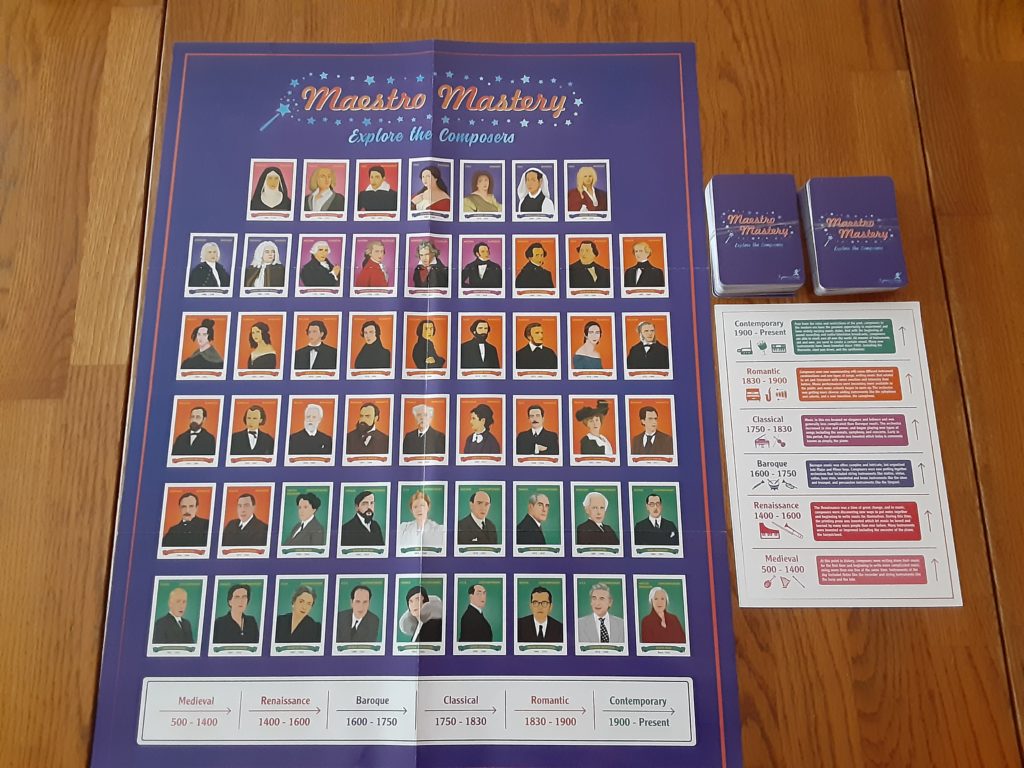
Also included in the game is a link to listen to music samples from each of the composers, which I love! It makes learning meaningful when the kids are reading about and listening to the composers.
Playing the Game
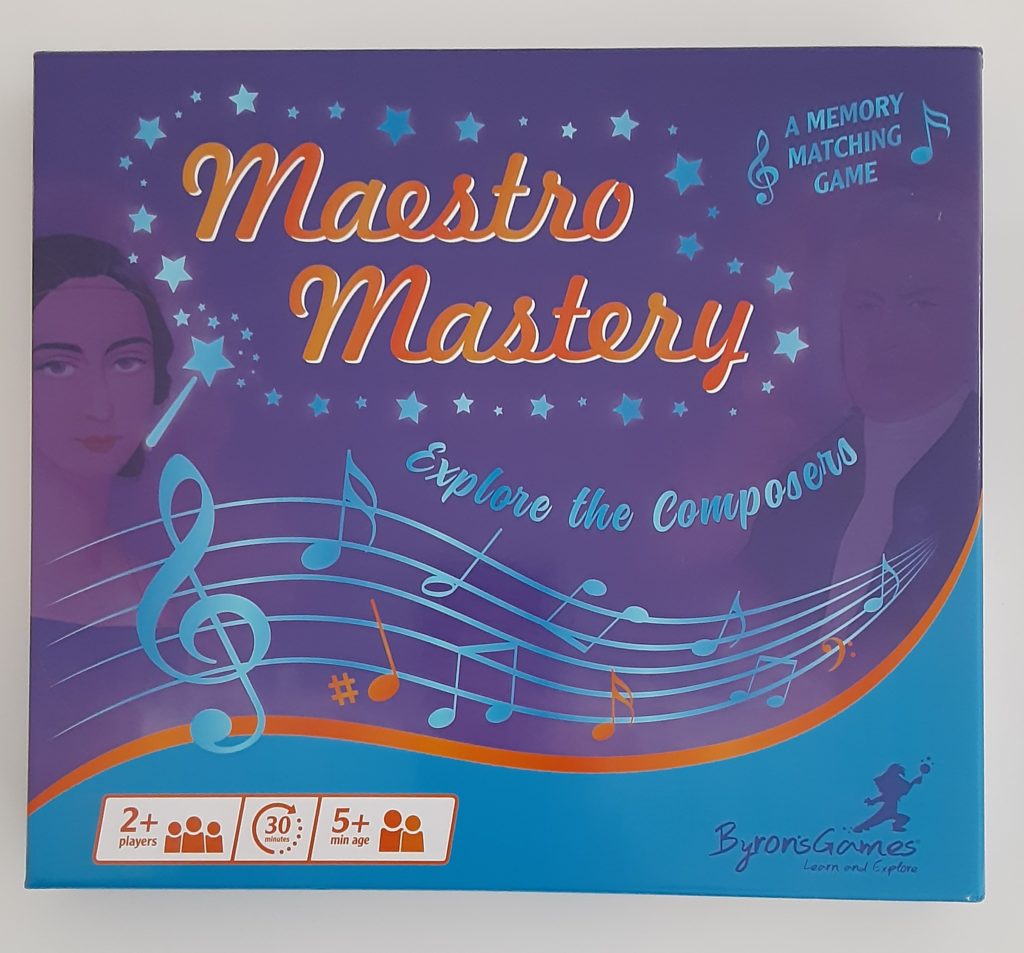
Since the deck has so many cards, you’ll want to use one deck at a time. We did since it was only three of us. If you have a large group playing, however, you could use both decks. You proceed to play the game as you would any memory game, trying to make matches. But with this game, you organize your matches by music era (this is where the Musical Timeline Card comes in handy).
In the end, you can determine the winner a couple of ways.
- The winner is the one with the most matches.
- The person with the most matches in a particular era wins that era.
Finally, the winner in a particular era reads the description from the Timeline Card. Everyone names off the composers they have that are from that time period. It is a fantastic way to reinforce what they are learning.
Music Education for the Whole Family
As always, Byron’s Games provide extra challenges to boost learning. Maestro Mastery is no exception.
The game in itself does an excellent job of providing an educational experience. Kids can read about the musical era with the timeline card and learn about each composer by reading the cards’ information. The poster with all the composers is a nice touch, too.
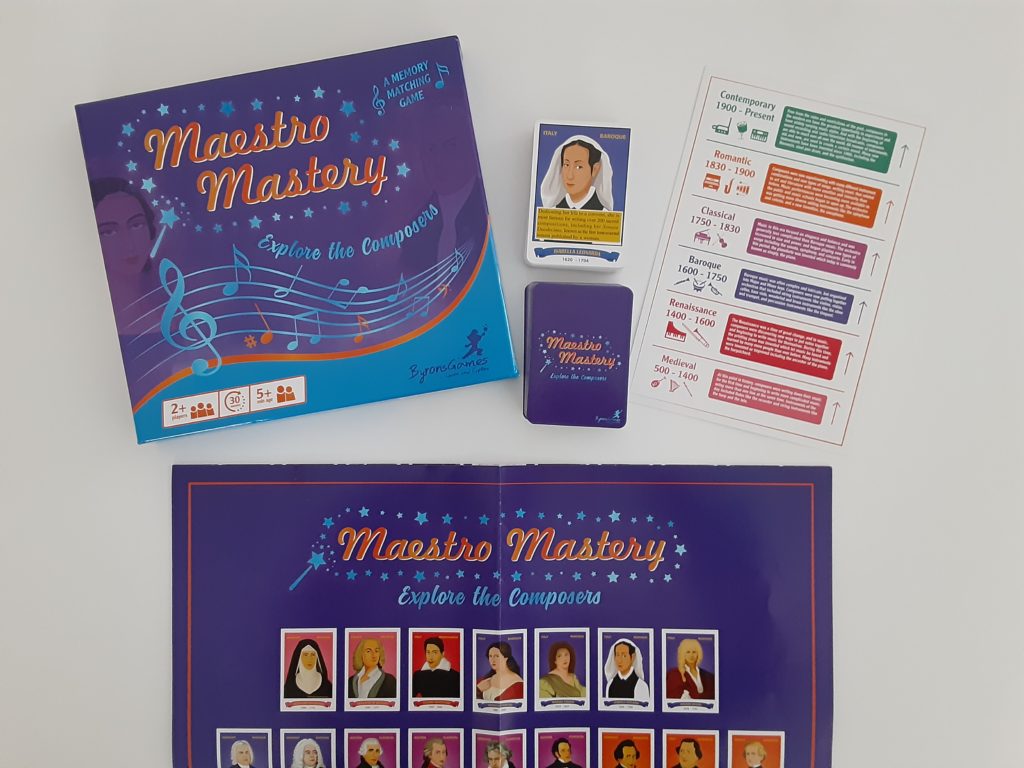
Yet, they take things a step further, which is excellent if you play with older kids. The challenge portion of the game incorporates listening to the composers. Kids listen to compositions and try to determine the era the music is from.
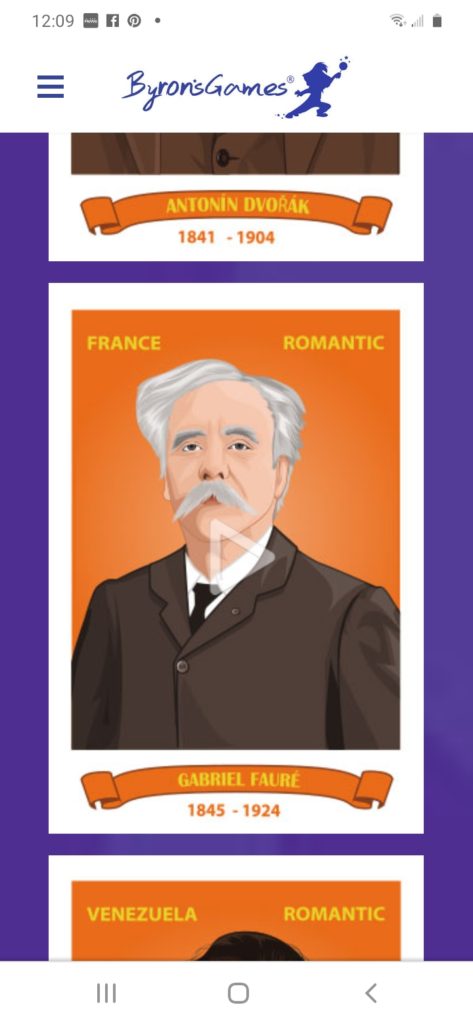
The other part of the challenge is to lay out some of the composer cards, play a piece of music, and the kids need to figure out who composed the piece.
Without a doubt, kids will begin to learn their composers and musical eras by playing the game. It does a wonderful job making music education fun.
How We Used Maestro Mastery for Music Education
I have a 12-year-old (6th grade) and a 14-year-old (8th grade) in my family. So I was able to test if this game was too young for middle school kids. Honestly, my kids didn’t think so. In fact, they grab it to play as a family game. They enjoy it that much. Maybe it’s a homeschooler thing. 🤷🏻♀️
We have played Maestro Mastery several times. It has become a regular part of our music education—my kiddos like reading the cards and have become quite good at recognizing many composers. They are even starting to develop a liking for specific musical eras. My daughter loves the music during the Romantic Period. It is great to see how much they are learning.
As we play, the kids group their cards according to musical eras. In the end, we listen to the music from various composers that they still don’t know well. Soon, I will begin adding in the Challenge activities. My kiddos are beginning to recognize the composers well enough that we will begin taking things a little further now.
Now, I have two highly competitive kids when it comes to games. So, we determine the winner by the number of matches (because my kids HAVE to go by this). We don’t stop there, though. After they have counted up their matches, we see who has at least one composer from all the possible eras and the most in each period. By doing so, this usually tamps down the competitiveness.
Usually, when we play, we play multiple games. Therefore, we play with one deck of composers and then the other. We have had a chance to play with each deck many, many times. They have developed fun ways of remembering the names and countries of the composers. It is really great to see them excited while they play and learn the information.
Soon, I will let the kids choose individual composers that we will study more in-depth. We will also incorporate this in our history studies too. The game is very versatile. You can use it as a jumping point for learning many things or as a supplement in your homeschool.
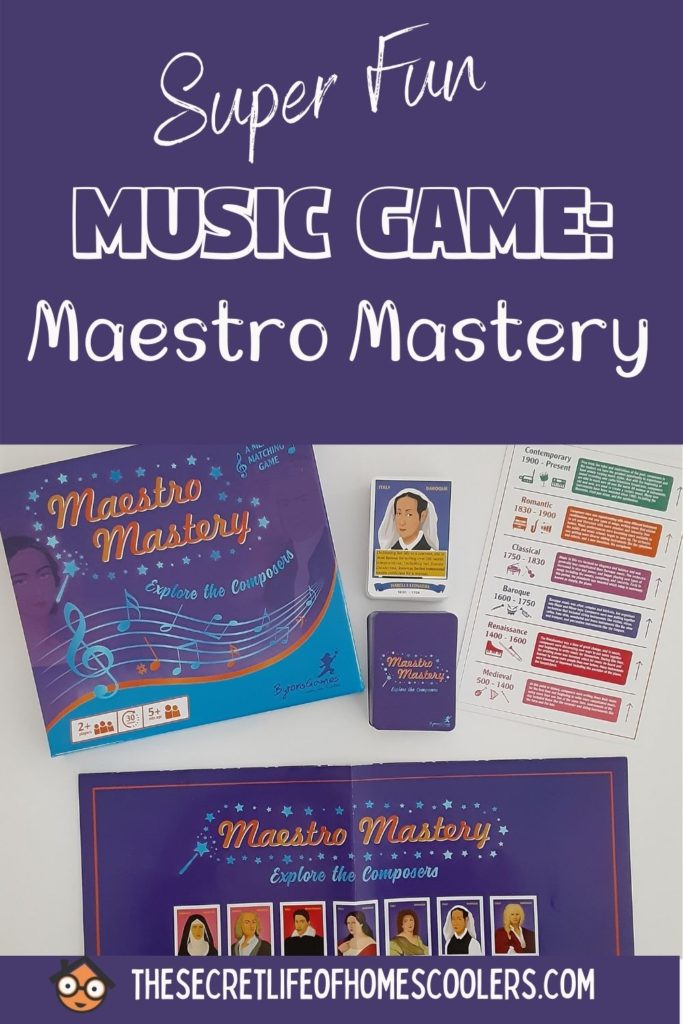
Overall Thoughts of Maestro Mastery
As you can tell, I think Maestro Mastery- Explore the Composers is an excellent addition to any music education program. Maestro Mastery is a great way for kids to learn composers and musical periods in a fun game format.
I’m always impressed how Byron’s Games makes learning fun, adds in extra challenges to make things more difficult (and even more educational), and provides ways to adapt the game to different ages playing together. Maestro Mastery does all of this and has kids wanting to play again and again.
If you want to see what others thought of Maestro Mastery, click HERE to read more reviews.
Follow Byron’s Games on social media!
Facebook
Instagram
Pinterest
YouTube
Happy Homeschooling!

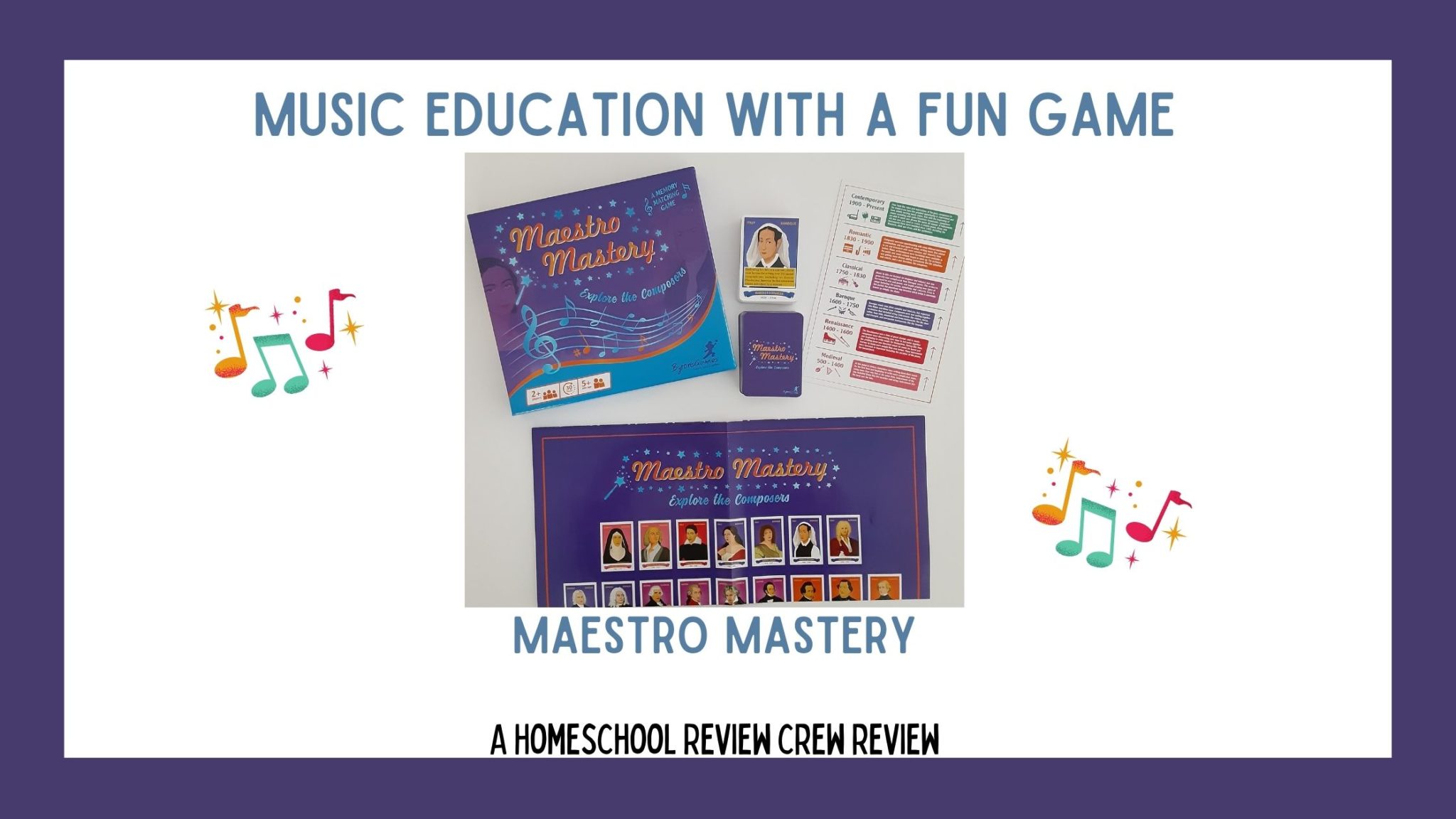
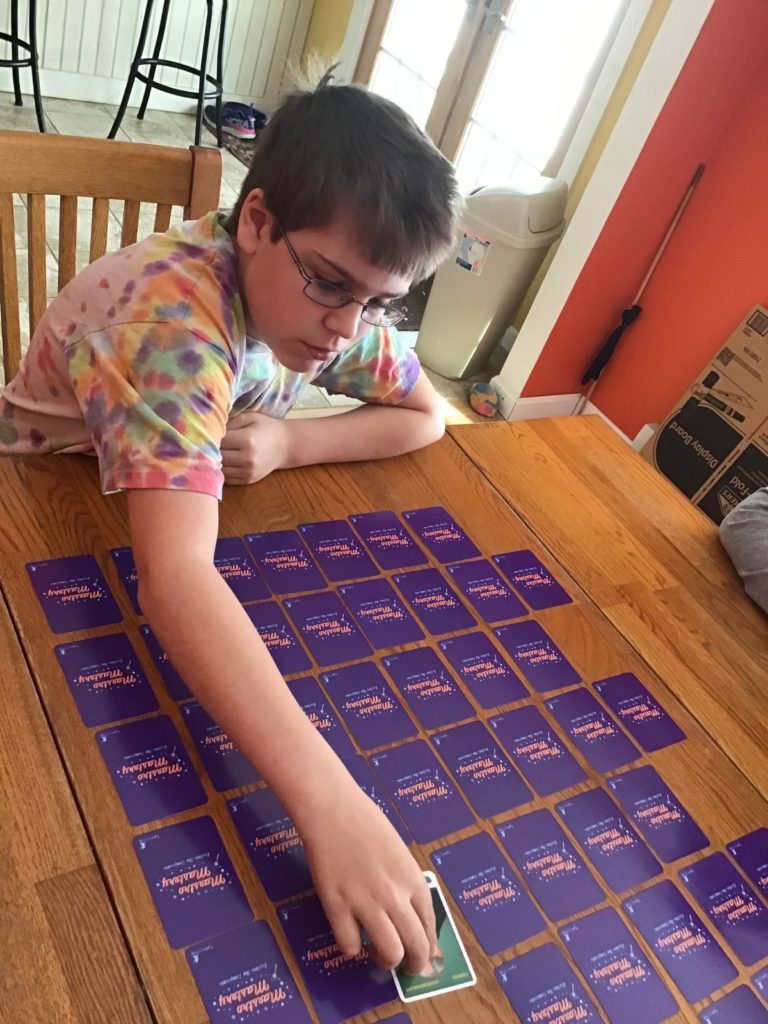
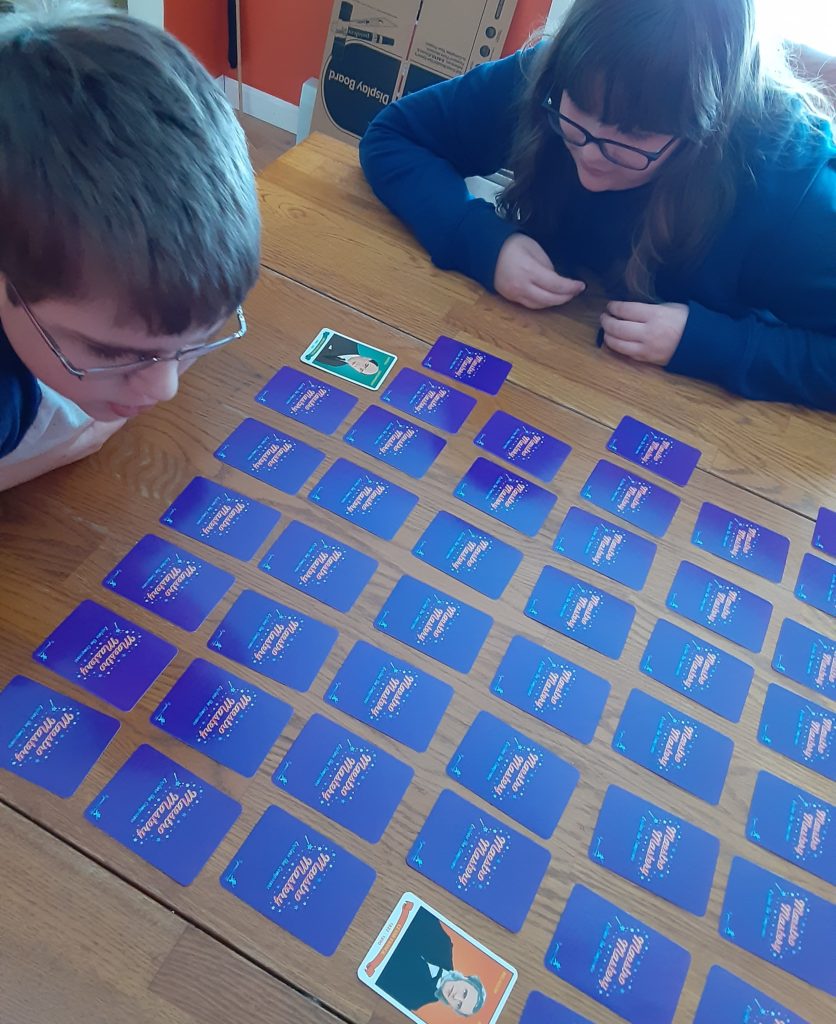
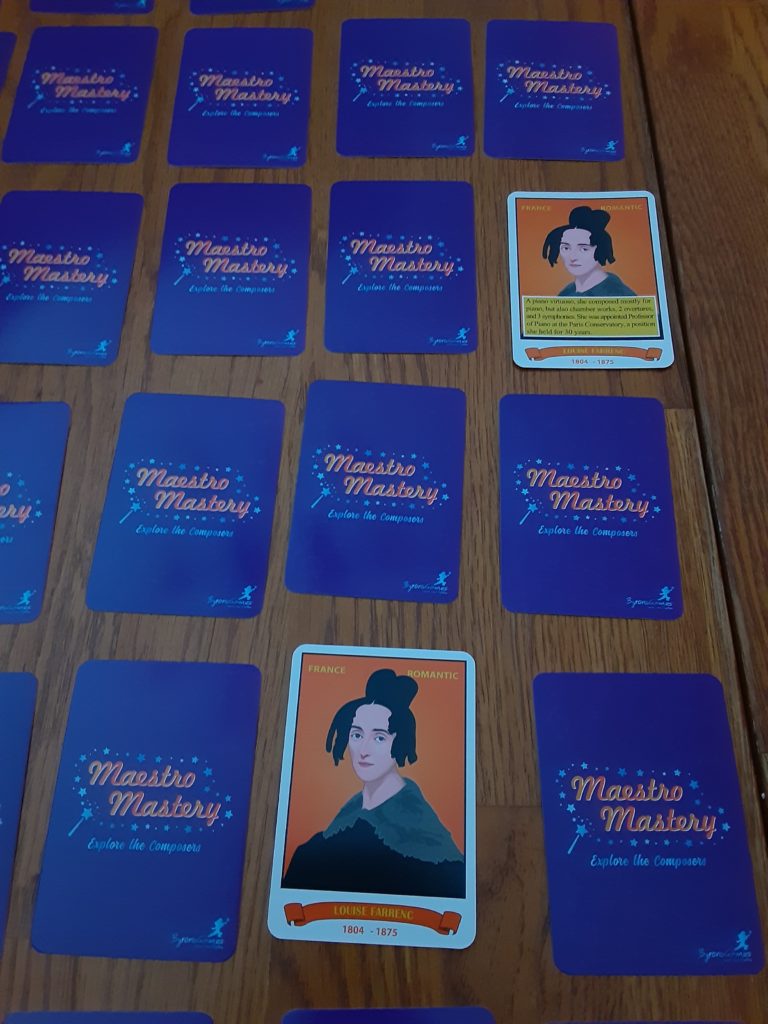
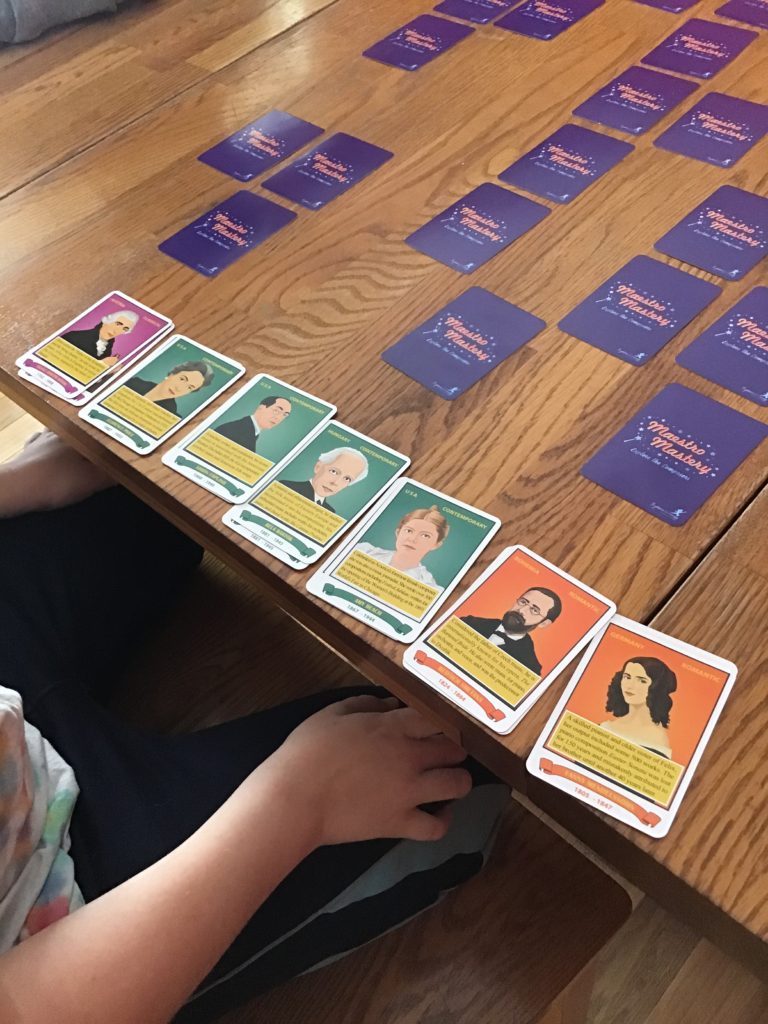
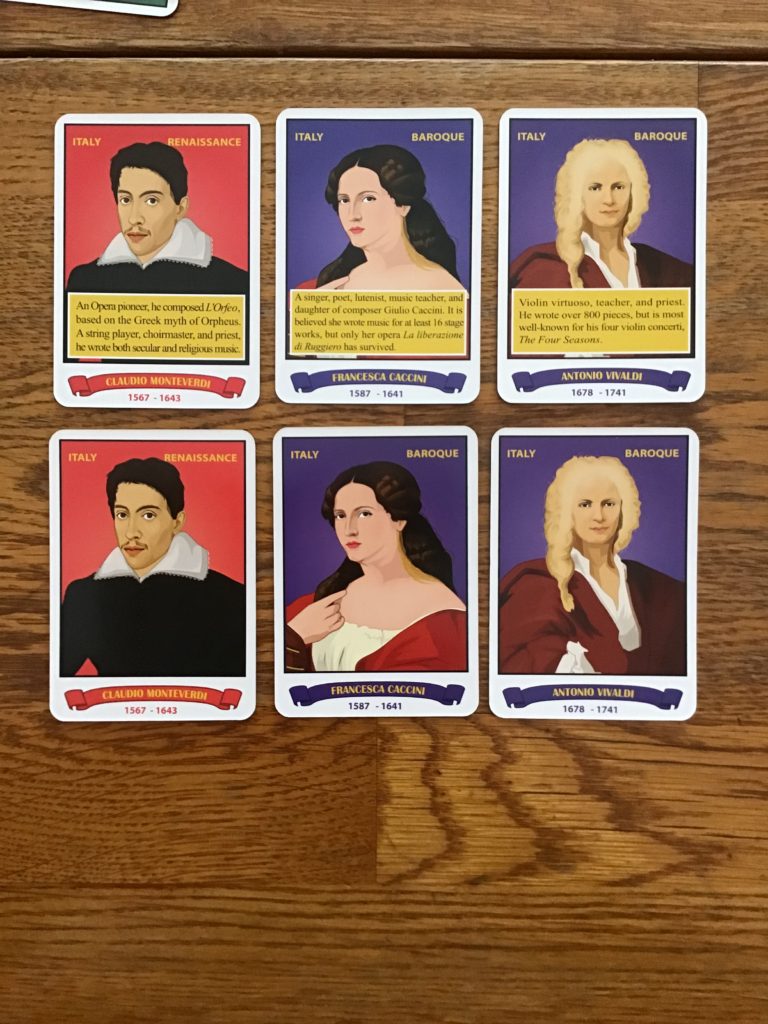
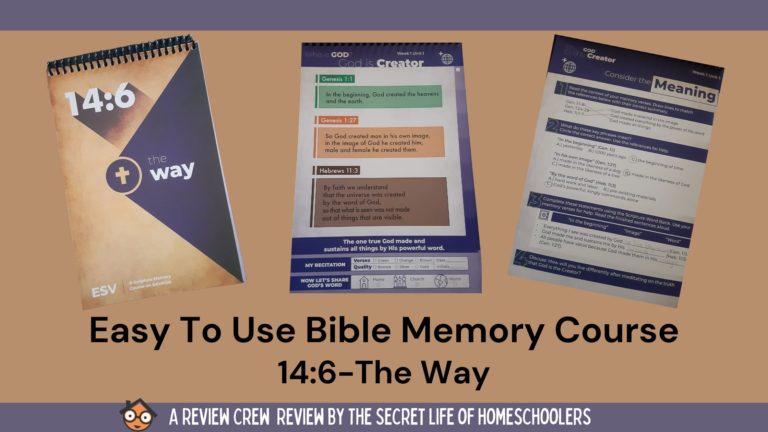

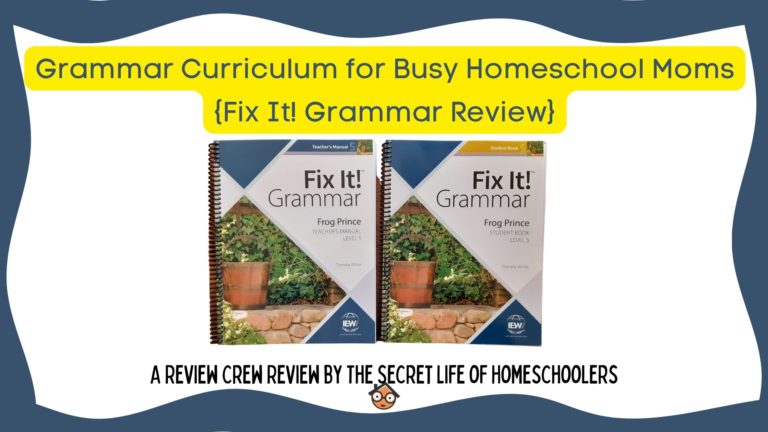
Great review, and what a fun way to learn about something that especially older kids might would find boring. I love Byron’s Games!
Byron’s Games is one of our favorites for adding fun to our homeschool.